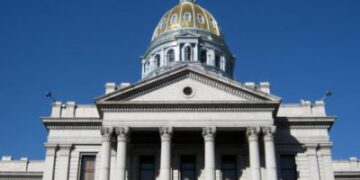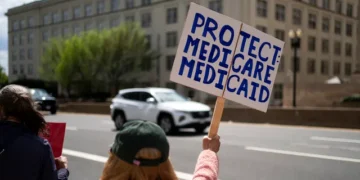Photo by: KTNV
June 19, 2024 Story by: Editor
The White House convened a Juneteenth summit recently, where officials spoke with WHYY News about their efforts and achievements concerning Black Americans. Despite a decline in support among Black voters, the administration asserts that the lives of Black Americans have improved during President Joe Biden’s tenure.
Key highlights from the Biden administration include:
Economy and Taxes:
According to the Economic Policy Institute (EPI), nearly 1 in 5 Black Pennsylvanians were unemployed by the end of 2020, the highest rate in any U.S. state. However, by the end of 2023, Black unemployment in Pennsylvania dropped to a record low of 5.7%, below the national average of 6.1%. Daniel Hornung, deputy director of the National Economic Council, emphasized, “More than two and a half million more African Americans have jobs now than when [President Biden] came into office.”
Hornung highlighted significant improvements in household wealth among Black Americans, which rose by 60% compared to 2019 after adjusting for inflation. The income gap between Black households and the overall average has also narrowed, with the average state unemployment rate in 2023 ending at 3.6%.
Housing:
Adrianne Todman, Acting Secretary of the U.S. Department of Housing and Urban Development, acknowledged the challenges faced by Black residents, particularly in Philadelphia, where they constitute the largest residential group but earn half as much as white non-Hispanic households. Despite rising home prices and interest rates, Todman noted the administration’s success in helping a quarter-million African Americans purchase homes and keeping 160,000 Black homeowners in their homes during the pandemic.
The administration is focused on expanding affordable housing and mortgage assistance programs, aiming to address the acute housing crisis affecting low-income renters in Philadelphia and other cities.
Historically Black Colleges and Universities (HBCUs):
The White House underscored its commitment to HBCUs, allocating $15 million for research into housing issues impacting Black communities. Dietra Trent, executive director of the White House Initiative on HBCUs, highlighted investments totaling $16 billion between 2021 and 2023 to support these institutions. Trent emphasized efforts to create partnerships and funding programs aimed at bolstering HBCU resources and resilience.
Gun Violence:
Greg Jackson, deputy director of the White House Office of Gun Violence Prevention, reported a significant decrease in gun-related homicides across major U.S. cities, including a 42% reduction in Philadelphia. Jackson credited the administration’s comprehensive approach, including the Bipartisan Safer Communities Act, which allocated $15 billion for violence reduction strategies and community-based interventions targeting at-risk individuals in Black and brown communities.
Medicare/Medicaid:
Chiquita Brooks-LaSure, administrator for the Centers for Medicare and Medicaid Services, highlighted expansions in Medicaid coverage benefiting Black Americans, with more than 1.7 million people enrolling in federal and state healthcare exchanges. She noted enhancements in Medicaid services, including extended postpartum coverage and cost reductions for high-priced medications under Medicare.These initiatives reflect the Biden administration’s ongoing efforts to address systemic inequalities and improve the quality of life for Black Americans across various sectors. Source: WHYY

















